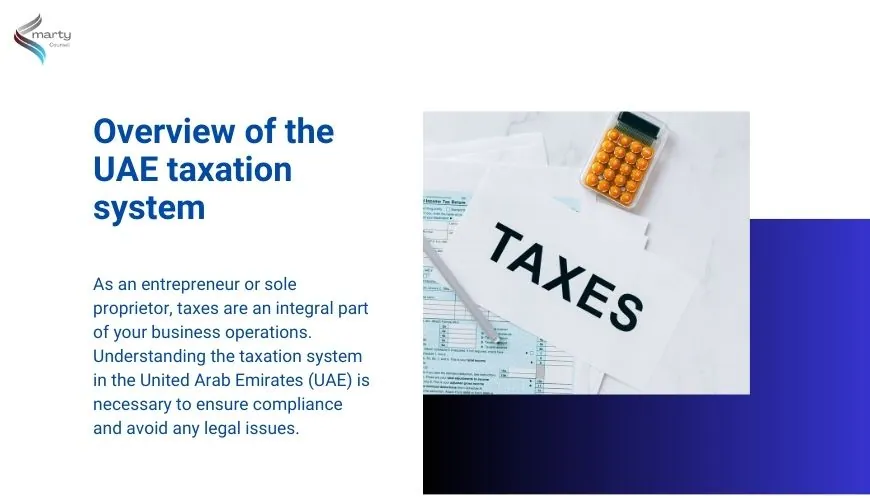The Best Guide to Business Setup in Dubai for 2025
Business setup in Dubai has become one of the world’s most attractive destinations for entrepreneurs

Overview of the UAE Taxation System As an entrepreneur or sole proprietor, it is crucial to understand the UAE taxation system. In the UAE, there are three main types of taxes that businesses need to be aware of. This document provides a comprehensive overview of the UAE taxation system, covering the key aspects and regulations that entrepreneurs should be familiar with.
Understanding the taxation system in the United Arab Emirates (UAE) is necessary to ensure compliance and avoid any legal issues. We will provide you with an overview of the UAE taxation system, including the types of taxes, registration procedures, and filing requirements.
The registration is Categorized as Mandatory Registration, Voluntary Registration, and Exception from registration
To register for taxes in the UAE, businesses must obtain a tax registration number (TRN) from the Federal Tax Authority (FTA). The registration process can be completed online.
Businesses that are registered for taxes in the UAE must file their tax returns on time to avoid penalties and fines. The filing requirements depend on the type of tax and the business’s turnover. For example, businesses that are registered for VAT must file their returns every quarter, while those that are subject to excise tax must file their returns every month.
The UAE imposes penalties and fines on businesses that do not comply with the taxation requirements. For example, businesses that fail to register for VAT may be subject to a penalty of AED 20,000. Similarly, businesses that do not file their tax returns on time may be subject to fines and penalties.
Business setup in Dubai has become one of the world’s most attractive destinations for entrepreneurs
Save Time and Money: Benefits of Outsourcing Your Accounting Services In today’s fast-paced business world,
Introduction E-Invoices in 2026, In a major step toward digital transformation and enhanced tax compliance,
WhatsApp us